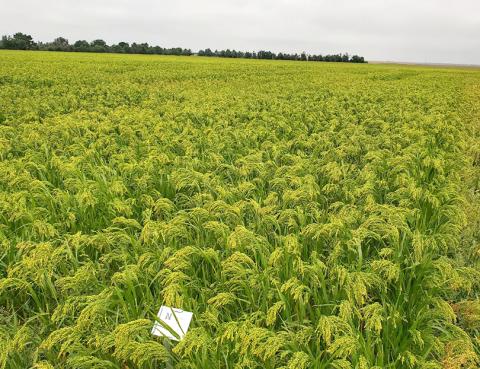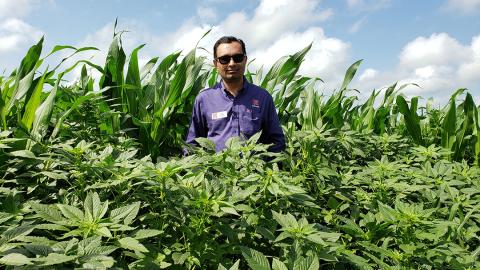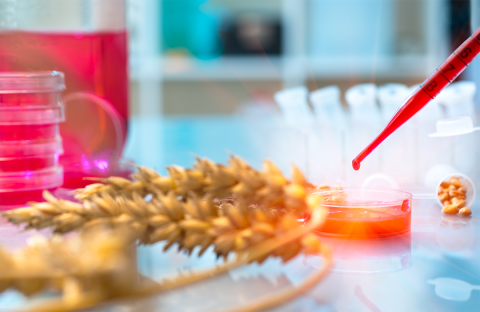Cooperative Proso Millet Testing in Second Year
November 6, 2024
Discover how recent proso millet variety trials from UNL and CSU could help farmers boost yields and find the best options for semi-arid regions.
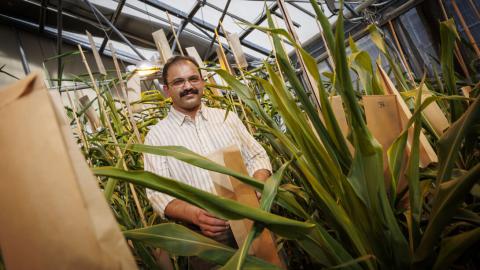
Husker Findings Boost Understanding of Sorghum’s Pest Resistance
October 25, 2024
UNL researchers have identified a hormone that boosts sorghum's resistance to the sugarcane aphid, offering a sustainable pest control option through enhanced natural defenses.

Husker Research Points to Increased Water Use Efficiency for Crops
October 11, 2024
UNL researchers have developed a genetic modification that enables plants to use up to 30% less water without sacrificing growth — a breakthrough that could lead to more efficient water use in agriculture.
Agronomy and Horticulture Seminar Series Begins Sept. 12
September 4, 2024
Free to the public, the fall seminar series will highlight the latest research and technologies for herbicide-resistant weeds, crop genetics, sustainable agriculture, digital agriculture, the impact of droughts on public health, and more.
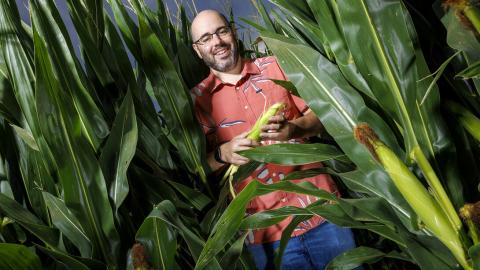
Schnable Expands Work to ID Corn Genes, Predict Hybrid Performance
August 14, 2024
The research team's efforts could lead to innovations that significantly streamline the process of breeding and commercializing high-yield, resilient corn varieties, which is crucial for meeting global food demands.
Analysis, Summarization and Interpretation of Plant Breeding Data Workshop Aug. 6-8
July 11, 2024
The focus of this workshop will be on the practical aspects of managing data and performing mixed model analyses, and participants are encouraged to bring their own datasets to explore options.
Introduction to Hybrid Breeding Workshop Begins July 31
July 11, 2024
This workshop is designed for non-hybrid breeders to become acquainted with basic terminology and the process for developing a genetically improved hybrid cultivar for commercialization.
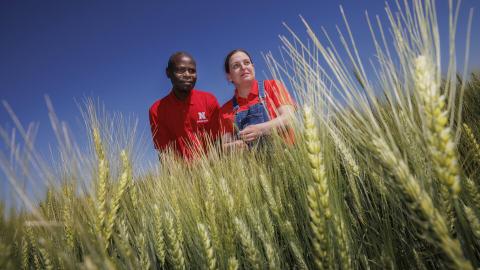
Nebraska-developed Wheat Variety to Address New Fungal Threat
June 12, 2024
The University of Nebraska–Lincoln is releasing a new wheat variety, NE Prism CLP, that stands out for its resistance to fungal disease, including fusarium head blight.
